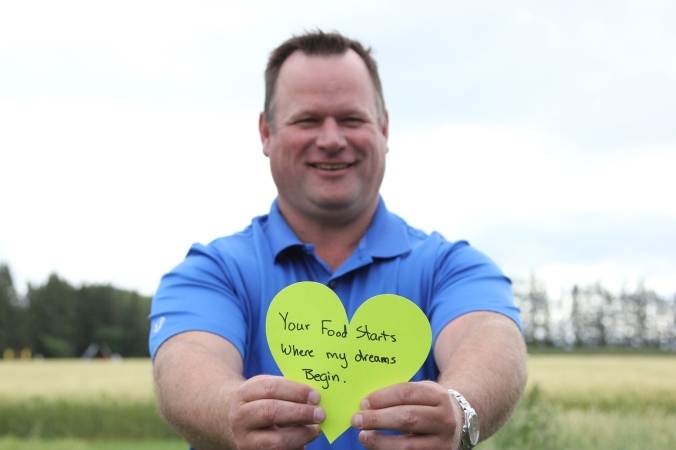If you’ve been following the media this week; you might have seen;
Manitoba farmer concerned by selfies sprouting in sunflower crop or
‘We’re closed forever!’: How the search for the perfect selfie let to bedlam at an Ontario sunflower farm or
Sunflower selfies damaging crops farmer warns
Why do you need to pause before you take that field selfie? What I found out from my online farming community is really quite practical and creates a wonderful opportunity for us to all learn together.
What do farmers really want us to know before we stop to take that roadside photo or selfie?
I wasn’t entirely sure so I took to twitter and asked my farmer friends. Here’s what they had to say:
Farmers, what do you want the general public to know about taking field photos? #alwayslearning https://t.co/NHhGyrrQrr pic.twitter.com/ljikdnJSWV
— Jennifer Dyck (@jeniferdyck) August 3, 2018
1. Thanks for being curious
Farmers want to thank us for taking an interest in what they do and what they grow. They are very knowledgeable about what is growing in their fields and they want us to ask questions.

2. Get Permission
DYK that farm fields are private property? To enter a field you require permission from the landowner. Know that you are trespassing and you can be fined. Yes, it is possible to find out who owns the land, yes that takes planning and yes, this would be the ideal scenario. Yes, we all know asking for permission is not happening in the majority of cases. So, farmers want us to know a few things before we take those roadside photos.
Generally, stay on the edge of the field, don’t trample or litter & enjoy. Those stops are often spontaneous, so asking permission may be tough, but respect is key. If you can find us we are more than happy to answer questions or show you around.
— Pat Orsak (@OrsakPat) August 3, 2018
3. Safety must come first
Farmers want us to be safe. Safety is a top priority on farms and this now extends to us, the roadside inquisitors who are on farm property.
Did you pull off the busy roadway in a safe manner? Is it safe to exit your vehicle? Do you know if it is safe for you to enter or touch or eat the crop at this stage in development? Are you bringing foreign seeds or soil particles from another field or parking lot or yard or park into this space (think treads of your shoes, your furry friends, tires of your car)?
If you get permission, the farm family will guide you through all of these pieces PLUS you’ll get to ask all the questions about what you are seeing. Bonus: you might just get a photo with the farmer too!
It is a learning opportunity for everyone. If you contact the farmer they may even show you around. Plus then you have a farmer to photograph!
— Simon Ellis (@FarmLifeMB) August 3, 2018
4. Stay at the edge of the field & no picking
There is never a reason to enter a field. You can take amazing photos from the road, a field edge or approach (that mini dirt road that connects to the field). Learn your camera angles and know which direction you want in the background before you stop.

Why is this so important? The plants growing in the field are directly connected to the farmer’s income. By entering the field you may cause irreversible damage to plants which cuts into the bottom line for the farm family. Would you want someone skimming off your paycheck?
5. Take all your garbage with you!
You don’t want people leaving their garbage on your front yard, tossing it onto your balcony or into your car window. Farmers don’t want to clean up after you either. Plus, come on folks, this is nature. Your grade three teacher (and your parents) taught you to respect nature. Leaving your garbage behind is disrespectful to the farmer and to Mother Nature. You can do better (and most of us do).
Every year we have garbage like this in at least one of our fields (often several). Although I’m a little glad some farmers can see the bright side of a really inconsiderate situation #MrBrightside #keeponthesunnyside pic.twitter.com/kKpL1DNtpV
— Pam Heatherton (@PamHeatherton) August 3, 2018
Did you take a photo this year?
So, pony up, did you stop at a field this year without permission? I did. But now I know more so next time I can do better. #NoPlantsHarmedInTakingThisPhoto

I’m a proud Prairie girl and thankful for the farmers who feed us – I hope they smile knowing I paused to enjoy the beauty of their hard work. Farmers, I thank you!
Always,
Jenn
